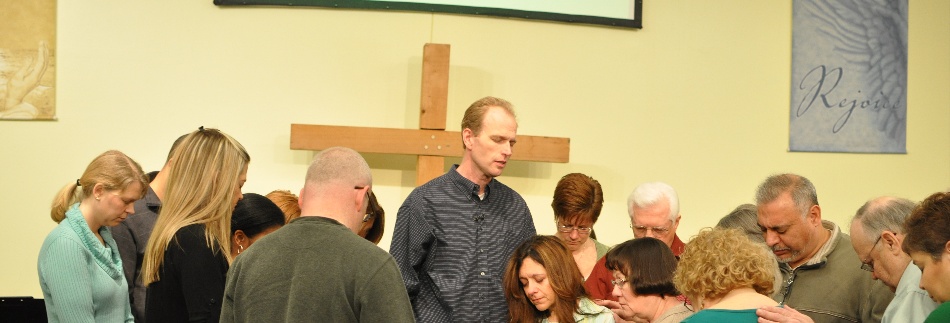
Image from Horizon Community Church horizoncc.org
Original source unknown
I’m combining two days’ choices of songs from Sing Praise in one post, because both are very short, both are by the same composer (John Bell) and both are intended as ‘intercession responses’ to be used between each section of prayers in public or group worship.
The words are short enough to be reproduced in full: the first, which I chose for Sunday 12th December, is ‘Lord, hear our cry / Listen to our prayer’. It could be used with everyone singing those words, but the suggestion is that the cantor (worship leader, or whoever is reading the prayers) sings the first part, with everyone else responding ‘Listen to our prayer’. Or it could be used in open prayer, where anyone who has been praying from the heart (the best form of prayer!) using ‘Lord hear our cry’ as a signal for others to respond.
The second one, which I chose for the 13th but which our own church music leader happened to pick for Sunday worship today, is ‘Through our lives and by our prayer, your kingdom come’. This one is in four part harmony so is more suited to being used by a rehearsed music group, although it could of course be sung in unison or by a single voice. Our vicar introduced the response to each section of the intercessions by saying ‘until your kingdom comes…’.
The reason such chants exist (and we will be using others for each of the next few days) is that prayer in church should be that of the whole people. Where some traditions including many Church of England congregations have a small rota of people speaking the prayers, a said or sung response to each prayer means that everyone can add their voice. It’s not surprising that the term ‘petition’ is sometimes used for these prayers that ask God to do something about a problem, as it is for when a large number of people sign a document asking a worldly authority to do the same. The difference is that God has promised always to take notice of our petitions, although his action in response, with his infinite knowledge of past, present and future, might not always be what we ask or expect.
Over the next few days we will be using a number of these short refrain-songs as responses to prayer: I am planning to incorporate them as responses to prayers at the end of Morning Prayer.
I have always tried to structure the prayers on these Morning Prayer-type occasions as (i) responses to what has come earlier in the service – the bible readings (Psalms, OT and NT) and other externally-driven elements (in the last year that has meant the hymns that Stephen has chosen), (ii) other concerns of the world, church and people’s personal circumstances, (iii) collects (usually the Collect of the Day, but sometimes also the set prayers in the book) and (iv) the Lord’s Prayer and some kind of conclusion (perhaps the Grace) or dismissal. In the YouTube version of Morning Prayer I made a deliberate decision to make the service “participative” in the sense that viewers would be expected to do some parts of it for themselves: they would have to pause the video to read the readings (Psalms, OT and NT) and to formulate their own prayers in section (ii) above – for otherwise there would be the danger that they’d simply watch passively and not actually engage with God. Morning Prayer is supposed to be an encounter with God, not an entertainment to be enjoyed.
About these five refrain-songs, I suppose the thing I miss is the Cranmer theology that “it is only through Jesus that we have access to the Father”, and therefore our prayers should finish with the collect-style reminder (if only to ourselves) that we are praying ‘through Jesus Christ our Lord’. So his collects almost all finish with that clause (although some of them have an extended “who liveth and reigneth with thee in the unity of the Holy Spirit: one God now and for ever” or similar ending).
To express the point more extremely than I really mean – the trouble with these five songs (205-209) on the double-page spread of the book is that none of them is explicitly Christian as such: they all proceed on the basis that if we ask nicely God will hear us. But the bible’s doctrine is that our sins have made a barrier between him and us so that he CANNOT hear (Isaiah 59:2), and that there is a chasm fixed between us and him: he is of purer eyes than to behold iniquity (Hab 1:13), and that only by Christ can that barrier / chasm be removed. The issue in prayer is not really that of saying a “pretty please” to God, but rather of surmounting this barrier. All five of them could be prayed by a loyal member of a different world faith, and the only one of them that moves closer to Cranmer’s position is 207 “Lord in your mercy hear our prayer” – which does at least make its appeal on the basis of God’s character rather than on the basis of our deservingness to be heard.
I don’t want to denigrate the positives listed by Stephen – I think responses such as these can help penetrate our feelings, encourage us in corporate prayer, serve as reminders to us that we have a God eager to hear and answer: these are all true, and many people find them helpful. But at the end of the week, after using these five refrains, I suspect that I will feel a sense of relief that I can get back to “through Jesus Christ our Lord. Amen” – for the heart of Christian prayer is the access to God given by Jesus. Now there is someone worth focusing on whilst we pray!